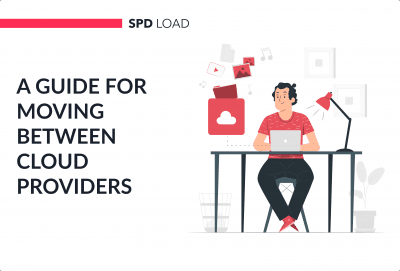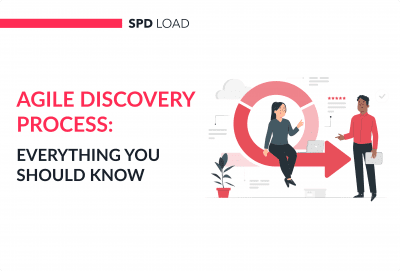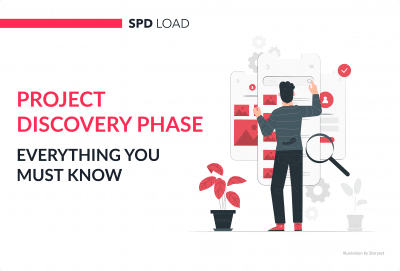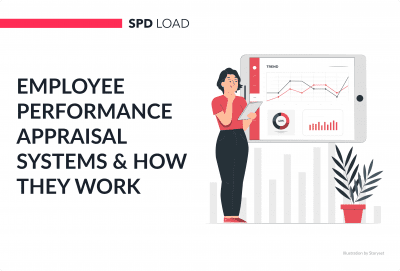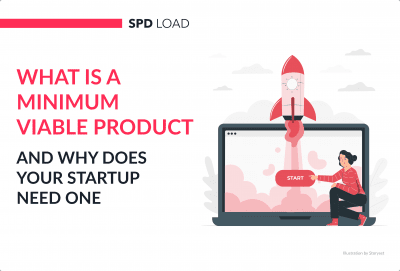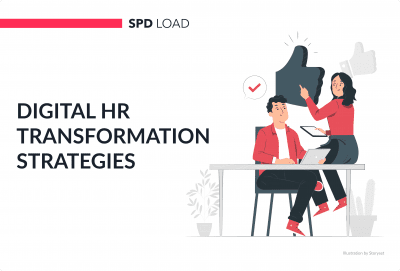Content Marketing for Startups: Types, Strategies, and Tips
- Updated: Nov 14, 2024
- 10 min
We all know that marketing your product is a huge priority.
A big mistake here is to focus only on ideal customers and not to plan: you need to have goals, directions, and ways to measure success, so your efforts bear fruit.
Utilizing content marketing is great for successfully building a startup.
It can be overwhelming as you have to think about things like what content to create, what platform to choose to promote it, and more.
Content is the backbone of any marketing strategy: according to research by Semrush, 91% of companies find the content very useful for their operations.
In this article, we’ll discuss some content marketing benefits for startups, common mistakes to avoid when making content, and the most popular content types to use.
Let’s get started!
Still looking for that breakthrough concept? Check out ways to find an idea for a unicorn startup.
Grow your startup globally with our clear marketing plan that brings real results.
What is Content Marketing?
Content marketing is a great way to create a connection with customers that can turn into sales.
It pulls customers toward your company and products rather than traditional outbound marketing ideas like cold-calling or print advertisements.
It is one of the most efficient ways to reach out to your target audience and connect with them on a deeper level.
When done correctly, it can help you build trust with potential and current customers, establish your brand as an authority in your industry, and generate leads and sales.
This is especially true for those businesses which are just starting to develop their marketing strategy.
5 Key Elements of Content Marketing
Some key elements of any content marketing strategy should include the following:
1. Focusing on a Target Audience
When creating content, it’s important to have your target audience in mind. This will help you stay up to date with the latest content marketing trends and generate unique, interesting, and relevant content.
2. Setting Clear and Measurable Goals
What do you want to achieve with your content marketing?
Do you want to increase brand awareness, generate leads, or drive sales toward your website?
Adjusting your strategy according to your primary goals, you create content that is aligned with your overall business objectives.
3. Having Diverse Content
Using a variety of content types ensures your effective startup marketing strategy.
It’ll help you reach customers in different ways and learn what content performs best.
3. Being Consistent
Content marketing requires ongoing effort and regular content creation.
The most successful brands treat it as an ongoing conversation rather than a one-time campaign.
You need to post regularly to keep your audience engaged and interested in what you have to say.
Follow SaaS content marketing statistics to understand which types of content are interesting for customers worldwide.
Additionally, you can use a grammar checker like Grammarly to ensure that your content is error-free and easy to read.
This can help you maintain a professional and polished image while also keeping your audience engaged with high-quality content.
If you’re entering the SaaS world, these best SaaS startup ideas are worth exploring.
4. Using Appropriate Software
There’s some content marketing software available that can help you with content creation, distribution, and measurement or tools that schedule your tweets and social media posts.
Utilizing these tools can save time and produce better results.
5. Having Plagiarism-Free Content
Creating original and high-quality content is crucial in content marketing.
Plagiarism-free content helps establish credibility, improve SEO rankings, foster audience engagement, and promote a brand’s unique identity.
That’s making a quick plagiarism check is essential to ensure content uniqueness before using it for marketing purposes.
How Content Marketing Benefits Startups
There are many benefits of content marketing for startups:
1. Helps You Stay Competitive
It helps level the playing field against larger and more established businesses.
With a content marketing strategy in place, you can reach your target audience with valuable and relevant information, even if you don’t have the same resources as your competitors.
2. Builds Trust with Potential and Current Customers
In today’s digital world, users get bombarded with content from all angles, and it can be difficult to know who to trust.
By creating high-quality content that is relevant to your audience and leveraging the right content marketing tools, you can show potential and current customers that they can trust you and your business.
3. Establishes Your Brand as an Authority
This is especially critical for startups, as they are likely competing against businesses with more experience and established reputations.
By creating informative and helpful content, you can position yourself as an expert in the field, even if you’re just getting started.
4. It’s Cost-Effective
Content marketing costs 62% less than traditional marketing and generates about three times as many leads.
5. Can Generate Leads and Sales
Including calls-to-action (CTAs) in your content, you can encourage readers to take the next step in their buyer’s journey, whether that’s signing up for a newsletter, downloading a white paper, or making a purchase.
A clear and vivid CTA leads to increased conversions.
Common Content Marketing Mistakes to Avoid
Now that we’ve discussed some content marketing benefits for startups, let’s take a look at the mistakes to avoid while doing basic content marketing:
- Creating for the wrong audience
By creating content without considering the interests of your target audience, you run the risk of losing their attention. - Not considering your overall business goals
Before you start creating any type of content, it’s important to have a clear understanding of what you want to achieve with your startup content marketing. Otherwise, it’s hard to determine whether you make any progress. - Being too salesy
While calls-to-action help distributes your content, you don’t want to make it a hard sell. If you come across as too pushy, you risk turning off potential customers and losing business. - Failing to promote
Just because you create great content, it doesn’t mean users will automatically see it; you need to put some time and effort into content promotion. By promoting your content effectively through any kinds of channels such as social media, email marketing, paid to advertise, etc. you expand the number of customers it reaches and encourage engagement. Learn how to craft effective email marketing strategies for startups to boost engagement. - Not implementing tracking and analytics
Without analyzing your content, your campaign loses opportunities to attract new customers, which has a great impact on the sales and promotion of your business. Measuring the performance and progress is key to influencing your content and digital strategies. You can see what works well and what parts need some improvement. It’ll help you measure the volume of your content and understand how it affects your desired results.
12 Most Effective Types of Content
While there are many forms of content you can create, here are a few of the most effective:
1. Blogs
Articles or blog posts are one of the simplest and most effective content types.
They can be used to educate your target audience on a specific topic, build thought leadership, or even create awareness for an upcoming product.
You can cover a wide range of topics, from industry news and trends to tips and advice. In addition, with a little SEO know-how, you can ensure that your blog content is reaching the right audience.
Find the best TypeScript developers for your project.
2. Email Newsletters
Email newsletters are a great way to keep customers up-to-date on what’s going on in your company.
You can use them to share blog content, announce new products or services, offer discounts or coupons, and more.
Just make sure not to bombard your contacts with too many emails, or they’ll quickly unsubscribe.
Looking for effective marketing tools? Here are some top email marketing software platforms to consider for your business.
3. Infographics
Infographics help take complex data and present it in a more digestible and visually appealing format.
They’re perfect for covering a lot of information in a short amount of time and can be shared across social media, embedded on your website or blog, or even printed out and hung up in office spaces.
Planning a crowdfunding platform? Learn what goes into crowdfunding website development.
4. Videos
Videos are a great option to consider as they are consumed quickly and easily, and they’re also very shareable.
Using videos is perfect for creating an emotional connection with your audience, providing step-by-step instructions, or giving customers a behind-the-scenes look at your company.
To perform well, don’t forget to use free video making tools that can take your content to the next level.
Additionally, you can embed Instagram feeds to display customer testimonials/product demos, enhancing authenticity & engagement.
5. Product Demos
Product demos are an excellent way to show potential customers what your product or service is all about and how it works.
They’re also a great opportunity to answer any questions that people may have about your offering.
6. Templates
Templates provide your audience with a starting point or framework.
They’re a helpful resource for those who don’t have the time or design skills to create their own content.
For example, if you’re a graphic designer, you can create templates for business cards, logos, or web design, or PowerPoint presentations.
By offering PowerPoint templates, you can make it easy for people to produce high-quality presentations that are on brand and look great.
7. Webinars
Live and pre-recorded webinars allow you to share your expertise with a large audience in real-time.
They’re perfect for providing in-depth training, hosting panel discussions, or giving customers a sneak peek at upcoming products.
For example, if you’re a software company, you can host a webinar to show people how to use your product.
Additionally, webinars offer a fantastic chance to upsell and cross-sell your goods and services.
They give visitors a thorough overview of your services and nudge them into making a purchase or signing up for a free trial.
ActualTech Media’s multi-vendor webinars give companies a platform to learn about technology and what goods are on the market.
8. Podcasts
Podcasts reach out to busy professionals who may not have time to read blog posts or watch videos.
They are ideal for content marketing as they usually present a long-form discussion, which allows you to delve into a topic and cover it in detail.
Investing in good podcast editing software can help you ensure your audio is polished and professional, making your podcast more engaging for listeners.
9. eBooks
An eBook is a great way to position yourself as an expert in your industry and build trust with potential customers.
Plus, it’s quite easy to self-publish with free book publishing sites available today.
By sharing valuable information that’s relevant to their needs, you’ll be able to show them that you know what you’re talking about and that you can help them solve their problems.
For example, if you’re a web design company, you can create an eBook on “The Top Ten Mistakes to Avoid When Creating a Website.”
10. Case Studies
Case studies dive deep into how your product or service works to show potential and current customers the results you’ve been able to achieve for other clients.
They provide detailed information that can help prospects understand the value of your offering and convince them to do business with you.
11. Checklists
Checklists are simple yet effective tools that can help your audience complete a task or reach a goal.
They’re perfect for providing step-by-step instructions or helping people keep track of what needs to be done.
For example, if you’re a wedding planner, you can create a checklist of things that need to be done in the weeks leading up to the big day or share examples of creative wedding hashtags you’ve created.
12. Interviews
Interviews are a valuable content marketing tool as they allow you to share the stories of others.
By conducting interviews with industry experts, thought leaders, or even your customers, you’ll be able to generate informative and interesting content. Plus, interviews are very shareable and can help you reach a wider audience.
Access premium design and development services for unmatched success.
Content Marketing Tips for Startups
Startups need to keep a few things in mind to create truly effective content.
Here are some effective startup business tips to implement into your strategy:
- Plan and schedule your content
Generating content can be time-consuming, so plan and schedule everything in advance. It’ll help you stay on track and avoid last-minute scrambling to post the content. - Use SEO techniques
Don’t forget to optimize your content for search engines so that as many users as possible can see it. Use appropriate keywords and hashtags so that it ranks high on search engine results pages. - Create evergreen content
This includes information that is relevant and useful for an extended period. It helps generate traffic and leads long after you post the content. - Track your content length
There’s no magic number when it comes to content length. It depends on what type of content you post and what platform you choose. For example, short-form content tends to perform better on social media like TikTok or Instagram, while longer content does better on a blog or website. Experiment with different lengths to see what works best for you and your audience. TikTok changed the game — now it’s your turn. Learn how to make a TikTok-like app with all the right features. - Optimize for different devices
Make sure your content is mobile-friendly. In today’s world, it’s significant to take into consideration that all your posts, videos, or else are properly displayed on all possible devices from computers to mobiles.
These ideas should help you get started on creating content that is truly effective for your startup.
Keep in mind that it takes time and effort to get the desired results, so don’t get discouraged if you don’t see an immediate return.
Rome wasn’t built in a day, and neither is successful content.
Every startup needs a marketing strategy. Check out how to set marketing objectives correctly to reach your audience.
What’s Next?
Content marketing helps startups build engagement and trust with potential customers without breaking the bank.
By focusing on solving your audience’s problems with helpful, relevant content, you lay the foundation for long-term growth.
If you’re looking to take your startup’s content to the next level, our team can help.
Let’s connect to discuss how discovery research and software development services can fuel sustainable growth for your business.
Looking for marketing support? Discover the key steps to outsourcing digital marketing effectively.
Building a startup is challenging but rewarding. This guide shows how to start a startup from scratch.



